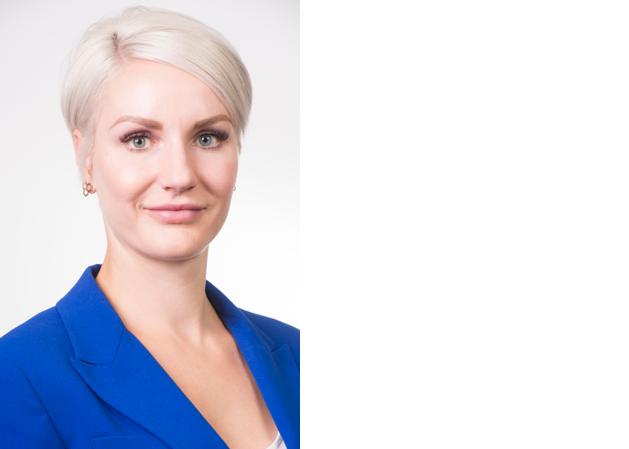
Sam Effah, BComm’14 and his partner on the Amazing Race Canada
CTV
Nov. 29, 2019

Some have been dubbed Lean In Circles or Straight Talk Breakfasts — whatever the moniker, mentorship programs come in all stripes, from employee-led to open-ended, from formal to informal. After months of research, UCalgary Alumni have launched their own rendition — Mentor Link.
Ensuring it’s not limited to a one-way transaction, Mentor Link is open to mentees and mentors of any age or life stage. New grad, student, or someone firmly established in their career but wanting to transition into a different area — you’ll likely be accepted as a mentee. As for mentors, the criteria is straight forward: you must be an UCalgary alumni who has worked for a minimum of three years. Plus, whether you’re a mentee or mentor, you can live anywhere on the planet as the program is accessible both digitally and face-to-face.
Successful mentorship programs can help employees be more successful, reduce turnover, increase loyalty and help create new opportunities for participants. Nobody knows this better than Sam Effah, BComm’14, two-time Canadian 100-metre champion, who is currently training for the 2020 Olympics.
Although Effah has benefitted by having mentors “in the office and on the track,” the 2019 Amazing Race Canada runner-up is now paying it forward by mentoring young students in a program called Classroom Champions.
“I am finding it particularly gratifying as I see them make large leaps in a short time,” says the 30-year-old Olympic hopeful. “I also like mentoring university-aged students because I remember the struggle I had first-hand, yet I made it through successfully. And that had a lot to do with the mentors I had.”

Sam Effah, BComm’14 and his partner on the Amazing Race Canada
CTV
The youngest honoree at the recent Top 40 Under 40 event was Catharine Bowman, 21, who expects to graduate with a Bachelor of Health Sciences degree in 2020. Astonishingly, Bowman began her research into lymphedema at the age of 14 and attributes the power of mentors for her current success and ambitions — she’s pursuing an MD/PhD. With a litany of mentors she’d like to thank — too long to list here — Bowman also adds she learned “what it means to be human from my mentors.
“I have learned invaluable lessons about life philosophy,” she adds, “believing in ourselves/that we can make lasting change, and rising to challenges in order to better those around us.”
As for what makes a good mentor, we turned to Brian Palmer, BComm’06, whose mentors have been in the martial arts, his family, as well as leaders in various workplaces. A career coach with UCalgary Alumni, Palmer is a firm believer that mentors “learn more about themselves through the art of coaching, guiding and listening than they ever could as a mentee. I’m truly grateful for all of my mentors; each of their personal styles has shaped and crafted the way I see the world. To have the opportunity to pass that knowledge along to others is humbling and gratifying at the same time.”
Echoing Palmer, Krystle Wittevrongel, BA’12, BSc’12, MPP’17, has worked both sides of the desk, having been a mentee and mentor throughout her career. Now a research associate with UCalgary’s School of Public Policy, Wittevrongel is mentoring a student, a process she finds “very gratifying for numerous reasons.”
“First,” she says, “it feels great to be able to help someone amplify their strengths. Second, I like the feeling of giving back to the community and feeling more connected. Third, mentoring has allowed me to reflect on my own path, view myself from the outside, and question my professional choices through a productive and beneficial lens. Fourth, I developed my own soft skills further (communication being the biggest area).”

Krystle Wittevrongel, BA’12, BSc’12, MPP’17
Adding to Wittevrongel is local CJSW radio host and musician Mike Tod, BA’12, who admits he’s not sure where he’d be without mentors.
“I am a firm believer in taking the lead of people who have come before me by asking them questions and listening to their wisdom and guidance,” says the Communications grad who’s behind the weekly podcast, The Folk, who comes loaded with shout-outs for mentors at CJSW, his music partner and in his personal life.
Whatever your background, most mentors agree that accessibility and leading by example are key but they also stress that the agenda should be led by the mentee who should be keen to broaden their perspectives as well as their network of contacts for future partnerships and career development. Wittevrongel also points out that “a good mentor should recognize the power dynamic of the relationship but know, and show, that there are areas where they can learn from their mentees and be curious.”
As Sheryl Sandberg writes in Lean In, the mentor-mentee relationship should be reciprocal. Mentees should be respectful of their mentor’s time, ask questions they can’t find answers to anywhere else, be prepared and always follow up. As for mentors, who can often act as a mentee’s sponsor or champion, they benefit by gaining a sense of fulfillment and pride in investing in someone else’s career.
“When done right,” says the COO of Facebook, “everybody in a mentee/mentor relationship flourishes.”